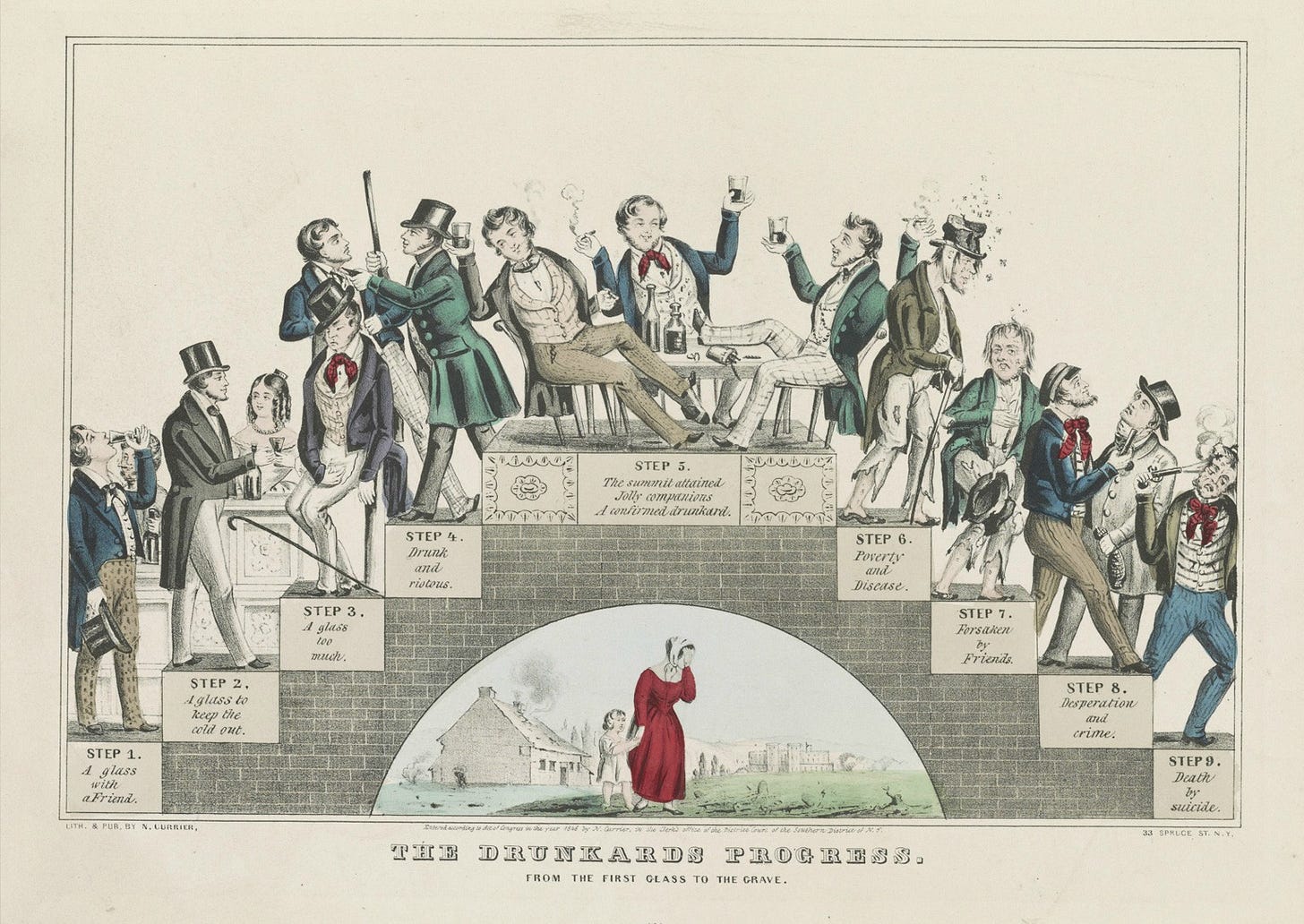The Day America Outlawed the Glass: How Prohibition Uncorked an Era of Hypocrisy
106 years ago, the U.S. Congress opened the door to 14 years of prohibition--and to a period of lawlessness and violence.
October 28, 1919 — Congress overrides Wilson’s veto of the Volstead Act
On this day in 1919, Congress overrode President Woodrow Wilson’s veto of the Volstead Act, setting in motion one of the strangest social experiments in American history: Prohibition.
It was the moment the United States decided morality could be legislated—and that whiskey, wine, and beer were unfit for a free people.
The result was a paradox. Instead of stamping out vice, Prohibition turned it into an industry.
Speakeasies blossomed behind unmarked doors. Bootleggers and mobsters built empires.
And ordinary Americans who’d never broken a law in their lives learned the art of quiet rebellion.
Jazz, cocktails, and defiance became the unofficial soundtrack of the 1920s.

Moral Zeal and the American Strain of Prudery
The temperance movement began with a kernel of truth—alcohol did wreck lives—but its fervor drew strength from a deeper well: an old Puritan suspicion of pleasure itself.
That strain of moral distrust, born from New England pulpits and nurtured by Victorian sensibilities, never truly disappeared.
It resurfaces whenever Americans grow uneasy about their own freedoms—whether the issue is sex education, cannabis, gambling, or a simple glass of wine with dinner.
Even today, traces of the old impulse linger. Dry counties still dot the Bible Belt. Some communities ban Sunday sales. “Sin taxes” rise and fall with the political wind.
And beneath it all hums the same belief that launched the Volstead Act: that virtue can be enforced.
The Real Legacy
Prohibition failed as policy, but it succeeded as a mirror.
It revealed how deeply America’s moral DNA is divided between freedom and restraint, indulgence and shame.
The liquor trade came roaring back after Repeal in 1933, but the moral tension never left the stage—it merely changed costumes.
So raise a glass today to the law that couldn’t stop the party.
Whenever we try to outlaw human nature, it simply goes underground and waits for the music to start again.
📜 Sidebar: From Dry Law to Cocktail Hour
1919 – Congress passes the National Prohibition Act (Volstead Act) over Wilson’s veto.
1920 – The 18th Amendment takes effect. Legal alcohol sales end.
1925 – Al Capone controls most of Chicago’s bootleg trade; “bathtub gin” and rum-running peak.
1928 – More than 30,000 speakeasies operate in New York City alone.
1932 – Franklin D. Roosevelt campaigns openly for repeal.
Dec 5, 1933 – The 21st Amendment ends Prohibition after thirteen long, thirsty years.
“What America needs now is a drink.”
— Franklin D. Roosevelt, 1933
Thanks for reading
John Pearce
Paris



Amazing Read 👏🏽